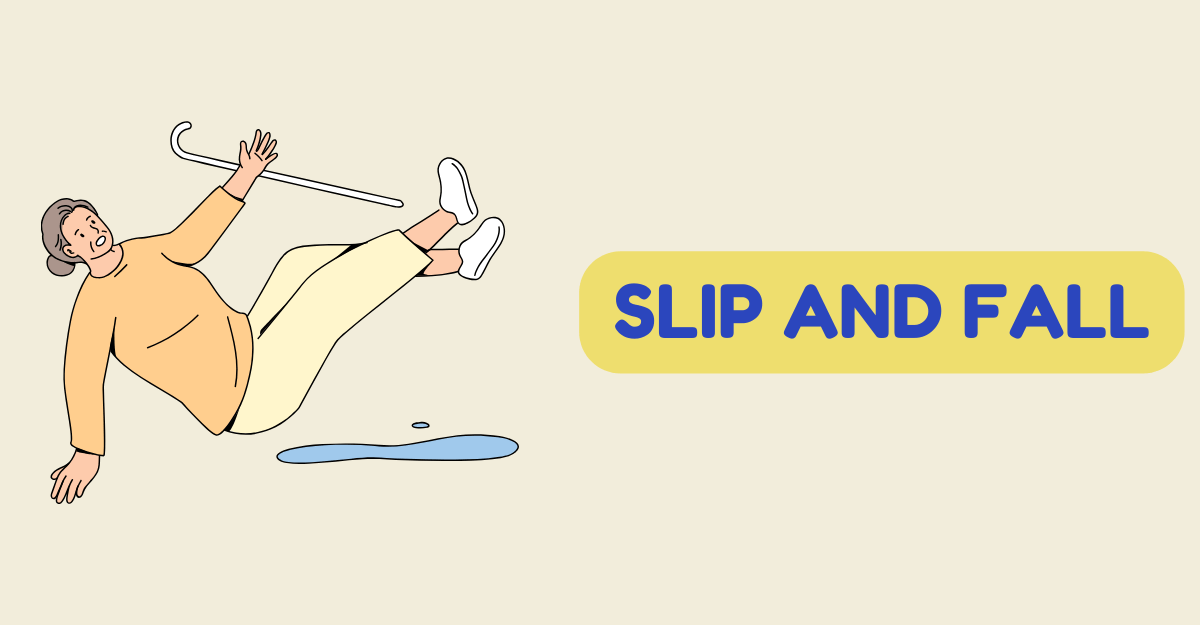
Slip and Fall
Slip and fall accidents are worryingly frequent. While it’s a relief that most slip and fall incidents don’t result in death, they can still cause considerable physical harm both in the short and long term, such as traumatic brain injuries. These injuries can persist for a lifetime for the victims, depending on the possibility of full recovery through treatment, time, and potentially therapy.
One might question how a seemingly minor slip and fall can profoundly impact the brain. The explanation is that despite the brain being securely housed within the skull, it isn’t impervious to the harmful effects of abrupt force. The violent shock from a slip and fall accident can be considerably severe.
Connection Between Traumatic Brain Injuries and Slip and Fall Incidents
The brain’s remarkable complexity comes with a specific cost. It is incredibly sensitive. A significant share of the body’s resources ensures its smooth functioning. Your skull serves as a protective enclosure for the brain. However, like any other body part, your skull’s protection has limits. Any sudden jolt to the skull can relay the impact’s force directly to the brain, which often leads to a traumatic brain injury (TBI).
A TBI could be the consequence of a simple slip-and-fall incident. When a person falls, they have minimal or no control over the direction their body takes. The body part cushions the fall and is particularly at risk, as it absorbs most of the impact.
Steps to Take Following a Slip and Fall Accident
A slip-and-fall accident victim should take the following steps as soon as possible (considering any injuries):
- Inform the premises’ management or a staff member about the incident
- Seek immediate medical attention or first aid if necessary
- Obtain an incident report from the property owner
- Get in touch with a brain injury lawyer who can evaluate your case and uncover additional details or proof regarding the slip and fall event
Immediate Signs of a TBI
If you or a dear one has encountered a slip and fall incident, it’s vital to spot the immediate symptoms of Traumatic Brain Injury (TBI) for swift medical care. These symptoms might be minor or may show up after a while, but they could point towards a serious health concern that needs prompt attention. Early signs of TBI could encompass:
- Headache: Any headache, slight discomfort or severe pain. This sign might appear right after the mishap or a few hours later.
- Ringing in the ears: Unheard before sounds like ringing (tinnitus), buzzing, or whooshing in your ears post the fall.
- Confusion or disorientation: Challenges in recalling recent happenings, bewildering your current location, or difficulty keeping track of time.
- Blurred vision: Struggling to focus on objects or experiencing blurry sight, which might be accompanied by light sensitivity.
- Dizziness: Experiencing instability, problems with equilibrium, or sensations of the environment spinning around you.
The Treatment for a TBI?
Traumatic Brain Injuries can lead to substantial medical expenses, potentially reaching thousands of dollars. They may also result in permanent disabilities, depending on the extent of the injury. In certain instances, patients may need constant care and cannot resume their previous work post-TBI.
The range of treatments for TBIs is broad. Minor TBIs such as concussions might only necessitate rest and over-the-counter pain relievers to manage symptoms. A mild concussion typically heals itself within a week to ten days. However, severe head injuries may demand more comprehensive treatment and extended recovery periods.
Utilizing diagnostic imaging techniques like CT scans and MRIs enables physicians to inspect brain injuries and devise a treatment strategy. This could encompass hospital stays, surgical procedures to address effects of contusions and/or bruises in the brain tissue or ruptured blood vessels, prescribed medicines, and intensive therapy for brain retraining.
Endnote
The legislation surrounding slip and fall incidents can differ greatly from region to region and hinges on the type of property where the incident occurred. Identifying liability can sometimes pose a challenge. If you’re a victim of a severe brain injury, consult with a local personal injury lawyer to gain more insight into your potential claim for damages.